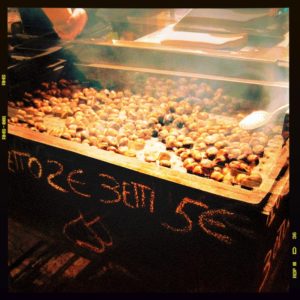 Buongiorno a tutti and welcome to On Location Italian. Lessons are all finished up, exams are just around the corner and I am home for Christmas next week. It’s official, my first semester in Verona is almost over. And what a semester it has been! I am so grateful for all the amazing places I have seen, the great food I have tasted and most importantly, the fantastic people I have met. I cannot believe how close you can become to people in such a short space of time but I guess that is the nature of doing Erasmus – without your own family and friends to lean on, you form your own sort of Erasmus family to get you through.
Buongiorno a tutti and welcome to On Location Italian. Lessons are all finished up, exams are just around the corner and I am home for Christmas next week. It’s official, my first semester in Verona is almost over. And what a semester it has been! I am so grateful for all the amazing places I have seen, the great food I have tasted and most importantly, the fantastic people I have met. I cannot believe how close you can become to people in such a short space of time but I guess that is the nature of doing Erasmus – without your own family and friends to lean on, you form your own sort of Erasmus family to get you through.
This week I have been indulging myself in some retail therapy. I had the idea that it would be nice to return to Scotland with some typically Italian Christmas presents. Whilst scouring the shops, the majority of my time was spent admiring the amazing food the country has to offer. In addition to the castagne (roasted chestnuts – which you can see in this week’s photo), I couldn’t help but notice the amount of pandoro and pannetone that took up the shelves in the delicatessens, cafes and supermarkets. Both pandoro and pannetone are types of traditional Italian sweet bread typically enjoyed around the festive period. Pandoro ( or Pan d’oro), literally translated as “golden bread”, originates from Verona and is sprinkled with icing sugar. Panettone comes from Milan and contains candied fruit. The word “panettone” derives from the Italian word “panetto“, a small loaf cake. By adding the Italian suffix “-one”, changes the meaning to “large cake”. I just have to find a way to fit these Italian Christmas dinner staples into my suitcase now!
In between spending an excessive amount of time in Verona’s alimentari (“general food shops”/ “delicatessens”), I have also learned a couple of new expressions. My Italian friend used the phrase ce l’ho sulla punta della lingua, translated in English as “it is on the tip of my tongue”. I also heard for the first time capire fischi per fiaschi which means “to get the wrong end of the stick”.
I hope you have all enjoyed my blog post and I will be back soon but until then, Buon Natale e Felice Anno Nuovo (“Merry Christmas and Happy New Year”). A presto!

